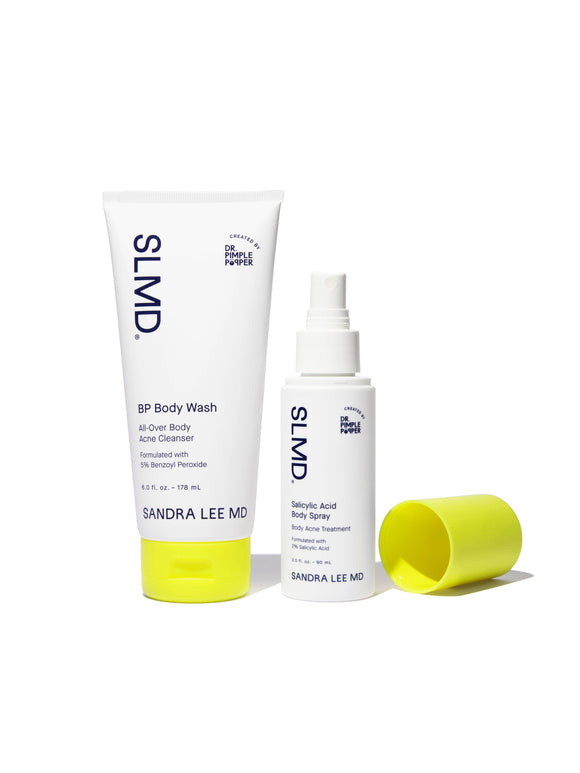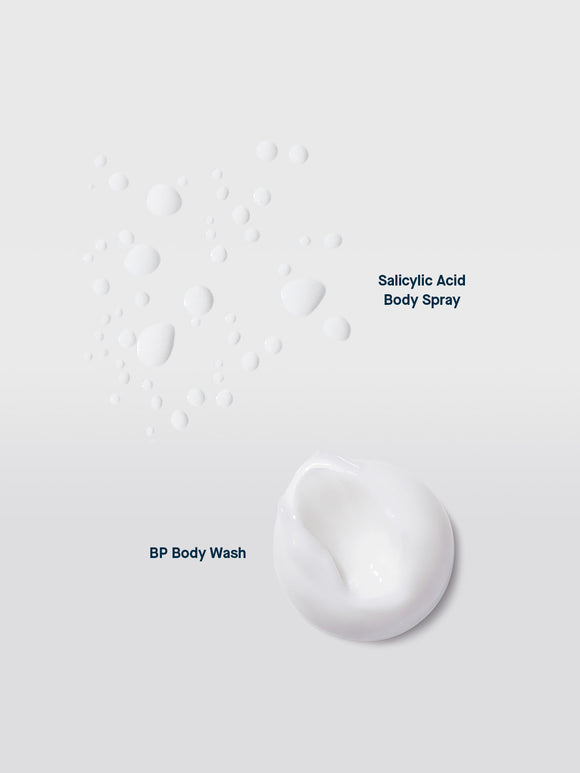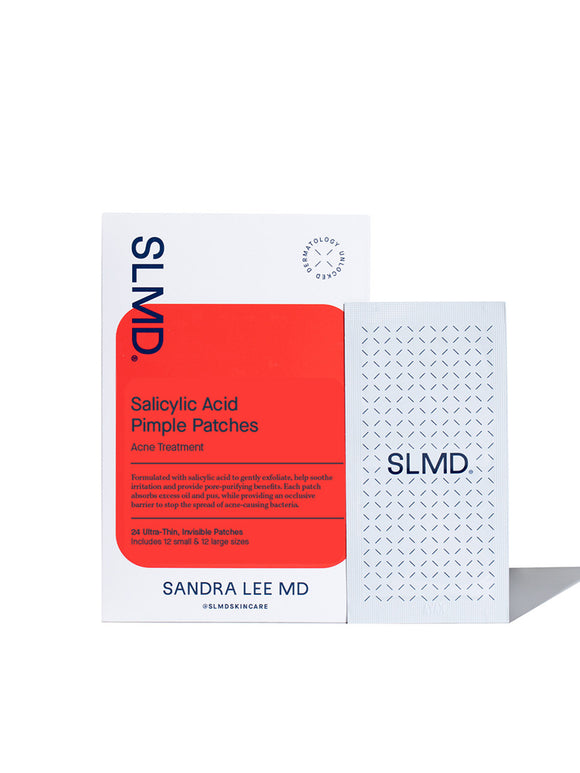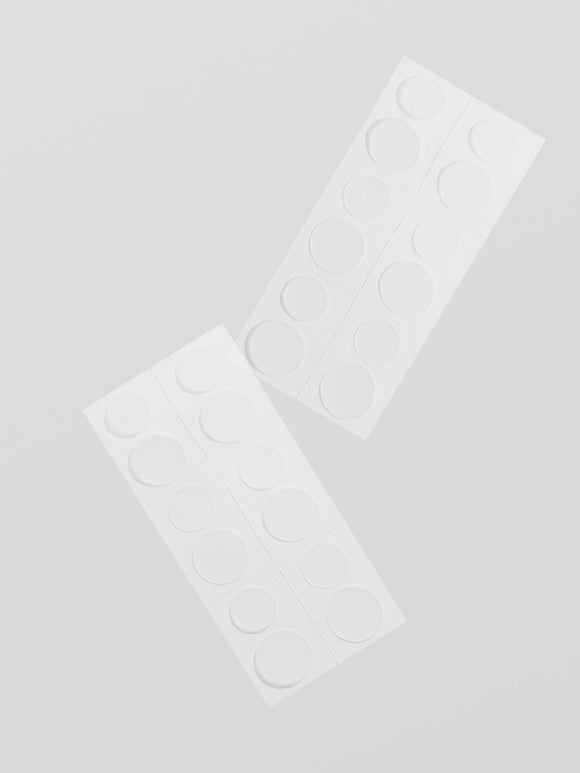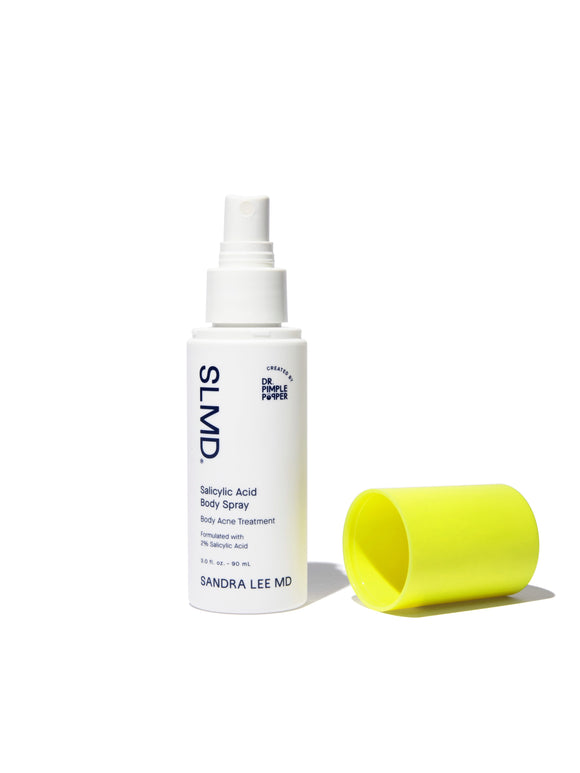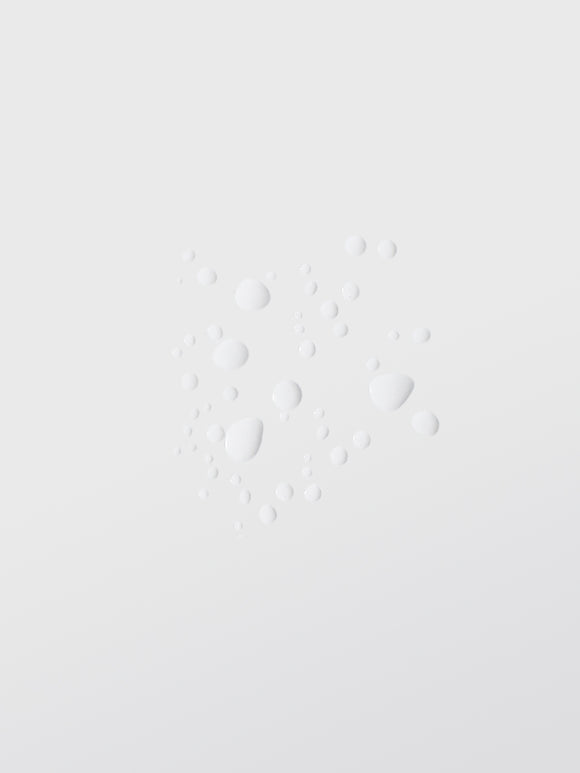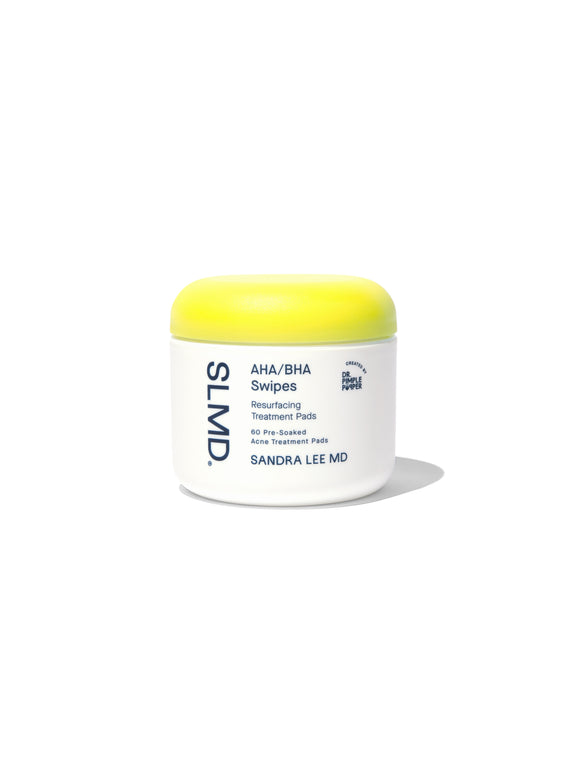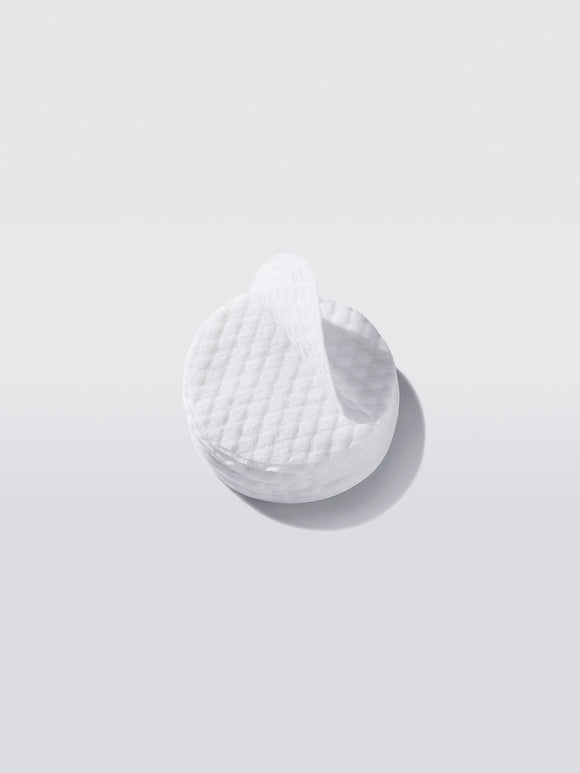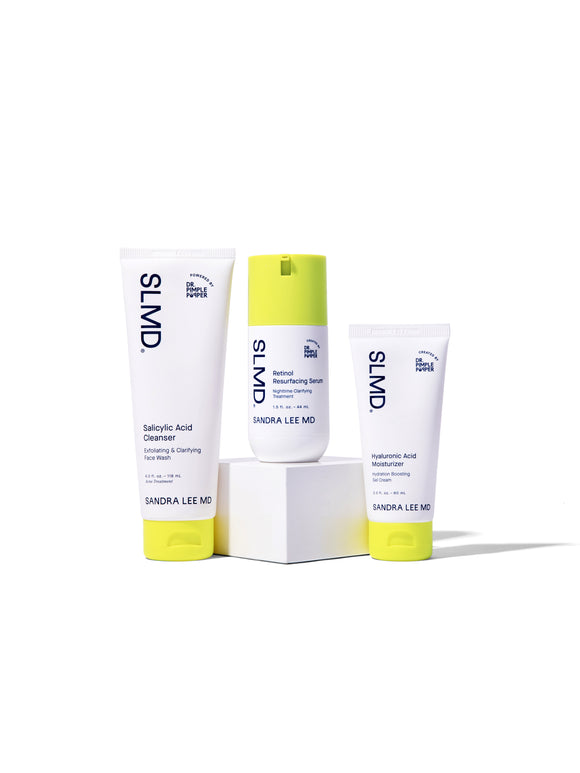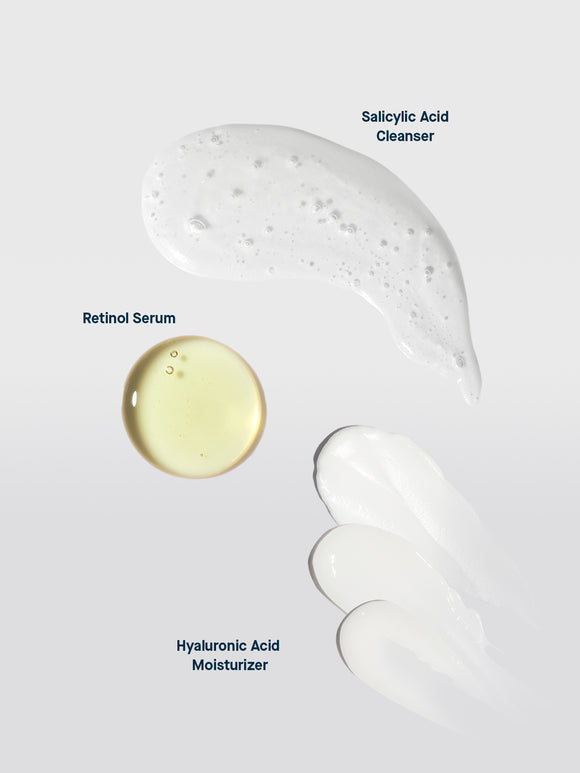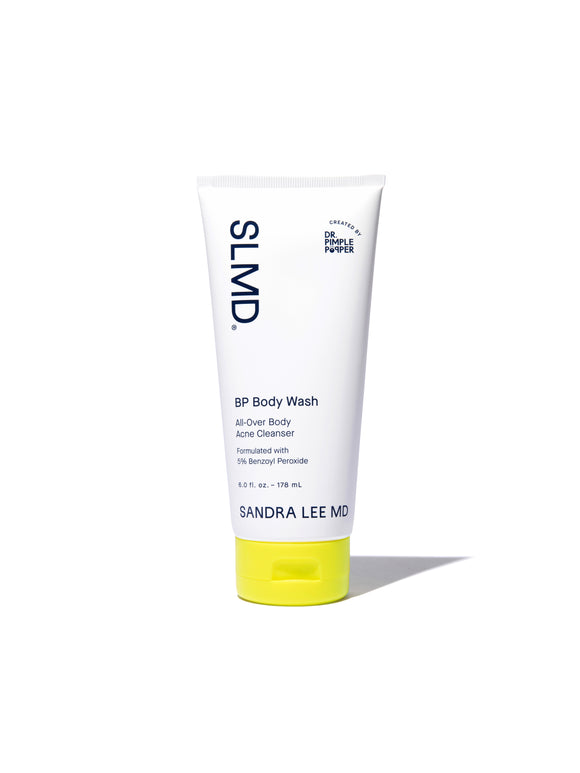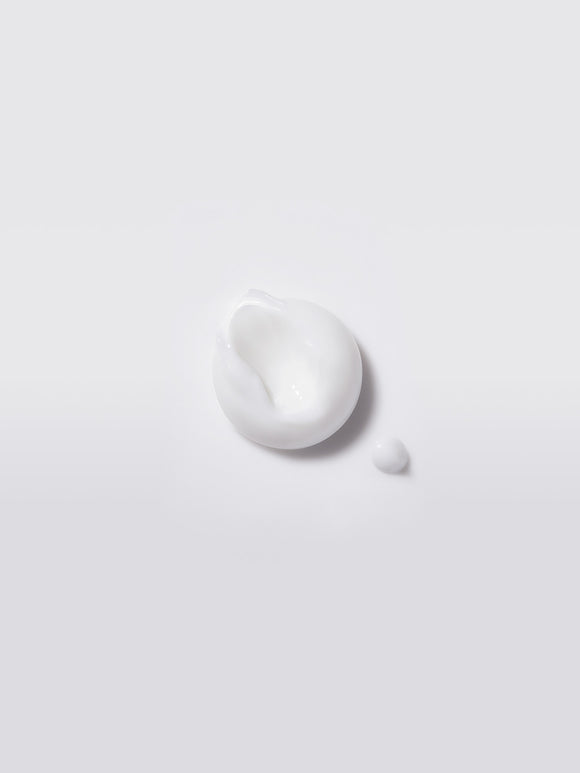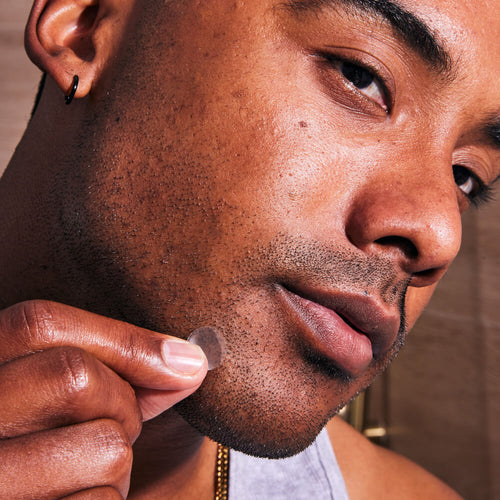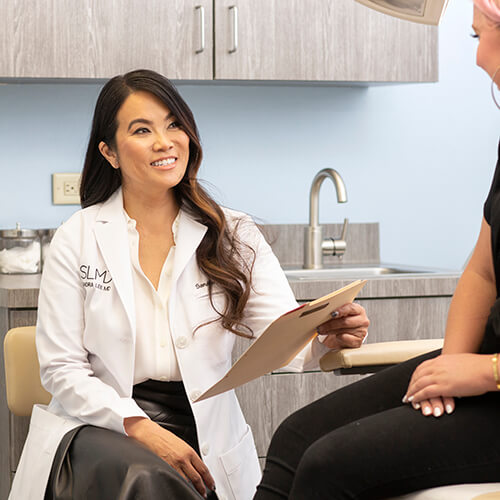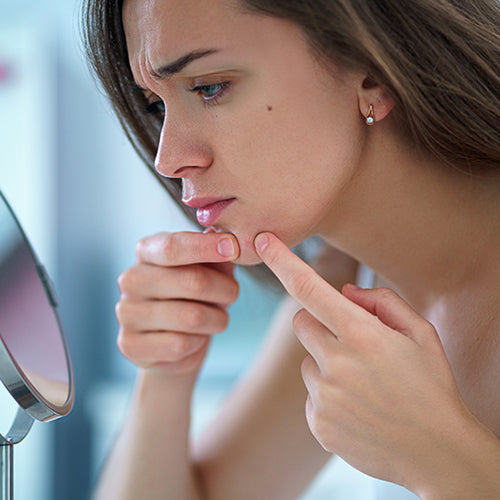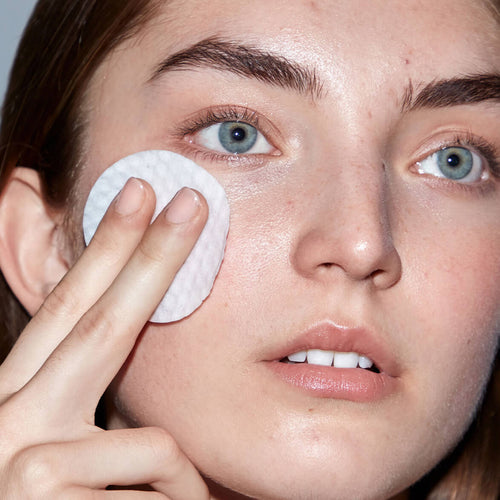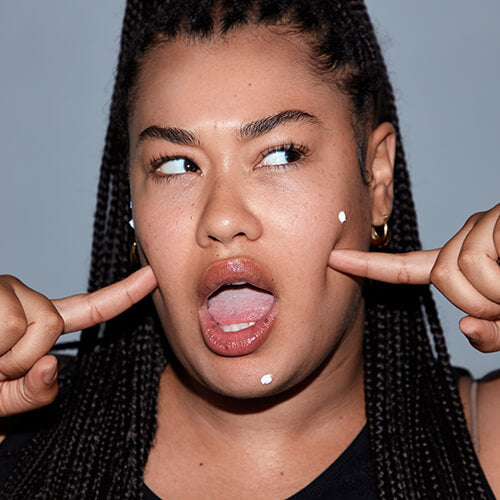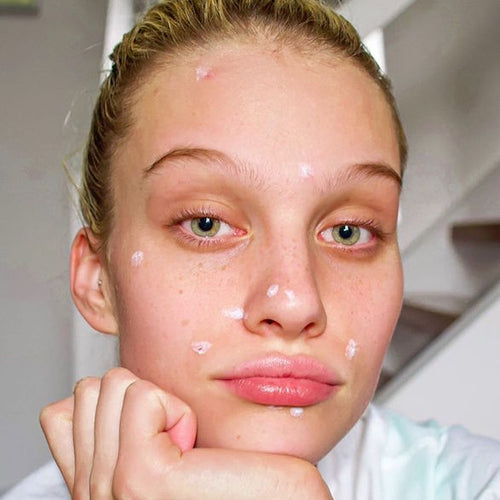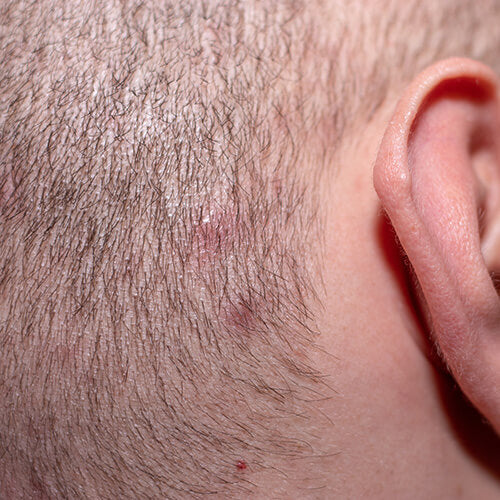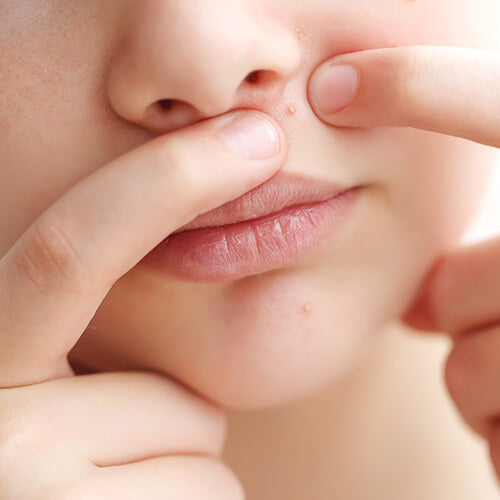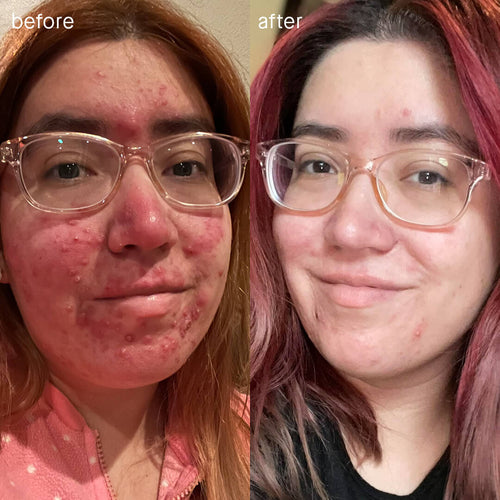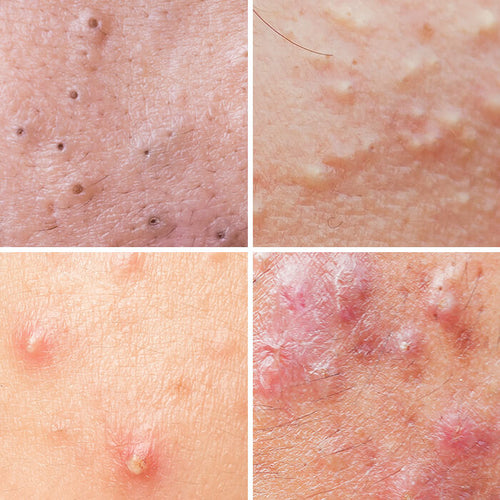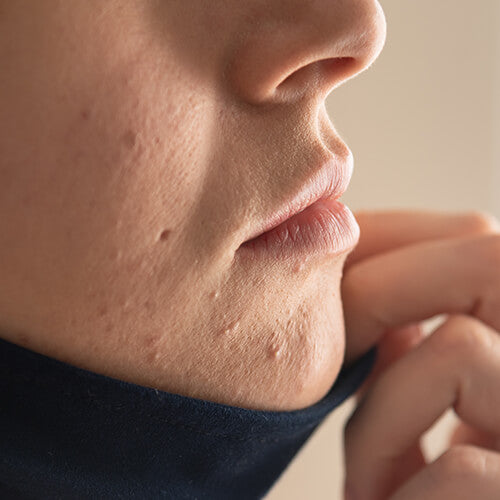
Acne Mechanica: Causes, Prevention, and How to Treat It
Dr. Pimple Popper reveals everything you need to know about one of the most common types of breakouts.
Published:
4 minute read
Have you ever noticed stubborn breakouts in areas where your skin is in constant contact with clothing, gear, or equipment? This type of acne, called acne mechanica, is caused by external stress on the skin during daily activities. It’s especially common among athletes, nurses, those wearing tight gear, or anyone dealing with repetitive skin contact from accessories.
In this guide, dermatologist and SLMD Skincare founder Sandra Lee, MD (aka Dr. Pimple Popper) explains what acne mechanica is, what causes it, and how to treat and prevent it effectively.
Article Quick Links
What is acne mechanica?
Acne mechanica is a type of acne caused by physical stress, such as friction, pressure, or heat, disrupting the skin barrier. When combined with sweat and bacteria, these external factors can lead to clogged pores, irritation, and inflammation. This results in non-inflammatory blackheads and whiteheads and inflammatory pimples.
Unlike other forms of acne vulgaris, acne mechanica is linked to repetitive physical irritation rather than internal factors like hormones. It often appears in specific areas that come into frequent contact with gear, clothing, or equipment.
“Acne mechanica is one of the most preventable forms of acne because it’s directly tied to what’s happening on the surface of your skin,” explains Dr. Lee. By addressing and managing these external triggers, you can often control or avoid breakouts altogether.
Common causes of acne mechanica
Acne mechanica can be triggered by anything that creates physical stress on the skin. The defining feature of this type of acne is its connection to specific items or activities that contact the skin. Common culprits include:
- Masks (aka maskne): "O-zone" breakouts around the mouth, cheeks, and lower nose.
- Hats and helmets: Pimples on the forehead, temples, and scalp.
- Straps and collars: Acne on the neck, shoulders, and back.
- Tight clothing: Irritation on the lower back, flanks, or thighs.
- Sports gear: Frequent breakouts on the chest, back, and shoulders.
- Chafing: Acne in areas like the inner thighs or buttocks.
Dr. Pimple Popper's Acne Mechanica Solutions
How to treat acne mechanica
The best way to treat acne mechanica is by reducing irritation and following a targeted, consistent skincare routine. Here’s how:
For the face
- Cleanse regularly: Use a gentle cleanser with salicylic acid to remove oil and exfoliate dead skin.
- Apply a nighttime treatment: Retinol helps boost cell turnover and minimize clogged pores.
SLMD Skincare to try: Treat Yourself Duo, Acne System
For the body
- Exfoliate regularly: Use glycolic or salicylic acid in body washes or scrubs to clear pores.
- Target problem areas: Apply benzoyl peroxide to reduce inflammation and treat active acne.
SLMD Skincare to try: Body Acne System, Glycolic Acid Body Scrub
General tips
- Avoid over-scrubbing, which can worsen irritation.
- Stick to non-comedogenic products to prevent further clogging.
- Focus on calming and hydrating the skin to repair the barrier.
- Spot treat active breakouts: Use products with benzoyl peroxide or sulfur to target inflammation and bacteria.
“When treating acne mechanica, it’s important to focus on calming the skin and keeping it clean without overdoing it,” says Dr. Lee. “Gentle care makes all the difference.” By following these steps, you can minimize the impact of physical stress on your skin.
Preventing acne mechanica
Simple habits can go a long way in preventing acne mechanica. “Preventing acne mechanica starts with being mindful of how everyday routines impact your skin,” explains Dr. Lee. By reducing physical stress and keeping your skin clean, you can minimize the risk of breakouts.
- Wash often: Clean your masks, hats, and gear regularly to prevent sweat and bacteria buildup.
- Shower promptly: Use a gentle cleanser after workouts or activities to keep pores clear.
- Choose breathable fabrics: Wear loose, sweat-wicking materials to reduce friction.
- Take breaks from tight gear: Avoid prolonged wear of equipment to let your skin recover.
- Spray your gear: Use a salicylic acid acne spray on straps, masks, the inside of hats/helmets.
Dr. Pimple Popper answers FAQs about acne mechanica
Q: How can I tell if I have acne mechanica?
A: Acne mechanica appears in areas where your skin comes into frequent contact with clothing, gear, or equipment. If your breakouts align with these patterns, it’s likely acne mechanica.
Q: Is acne mechanica permanent?
A: No, acne mechanica can be managed and resolved with proper treatment and preventive steps.
Q: Can acne mechanica occur on oily or dry skin types?
A: Yes, acne mechanica can affect all skin types, as it’s caused by external factors rather than oil production.
Q: What’s the difference between acne mechanica and hormonal acne?
A: Acne mechanica is caused by physical stress on the skin, while hormonal acne results from internal hormonal changes.
Q: What fabrics should I avoid to prevent acne mechanica?
A: Yes, synthetic or non-breathable fabrics can worsen acne mechanica. Opt for cotton or other breathable materials.

Dr. Lee's Last Word
Acne mechanica can be frustrating, especially when it’s tied to your daily habits or activities. But the good news is that it’s preventable and treatable. By adopting a consistent skincare routine tailored to your needs and making small adjustments — like wearing breathable fabrics and keeping your gear clean — you can effectively manage this type of acne.





